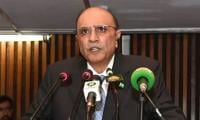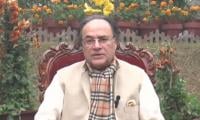The Joint Action Committee for Refugees, a collective platform of lawyers, activists, academics and progressive quarters, on Sunday called upon international human rights watchdogs and the caretaker government to give immediate access to legal counsel for all Afghan detainees as the allegedly indiscriminate crackdown continues.
“We demand immediate access to legal counsel for all Afghan detainees at the detention centres and police stations,” reads the committee’s statement. They demanded the immediate cessation of all raids by law enforcers on refugee settlements, where “women and children are at particular risk of gendered violence”.
They said the interim set-up had announced November 1 as the deadline for all illegal residents living in Pakistan to voluntarily leave the country, “with frequent references made to millions of Afghans living in the country”.
However, they added, even in the lead up to the deadline, “countless Afghans, and on many occasions local Pashtuns, complained of harassment by the law enforcers despite furnishing their credentials”.
On Saturday rights activists had claimed to have recovered three Afghan children holding proof of registration (PoR) cards from the detention centres set up for illegal foreigners to be deported from the country. The recovered Afghans included two brothers, 16-year-old Shamsur Rahman and 14-year-old Faizur Rahman, and 19-year-old Mir Ahmed.
Rights activist and lawyer Samar Abbas said the three were detained by police from their homes and sent to the detention centres. However, their families approached civil society organisations for help.
According to Abbas, police handed over both the brothers to their father at the Sohrab Goth SP office. Both of them were born in Pakistan and had valid PoR cards. Nineteen-year-old Ahmed was also saved from deportation. Advocate Moniza Kakar, who provides free legal assistance to Afghan refugees, said that initially, police denied arrest of PoR card holder Afghan children, but when they were provided evidence, such children were released.
Commenting on the situation, Saeed Husain, an anthropologist who has done research on the Pakhtun migration in Karachi, claimed that police, the Federal Investigation Agency and other law enforcement officials have little to no clue about how people are supposed to be processed.
He also claimed that law enforcers have been harassing registered Afghans and even Pakistani CNIC holders by unlawfully detaining them. “Families lucky enough to have resources make it to Sultanabad to find their loved ones.”
A few days earlier, 56 civil society members, including lawyers, professors, journalists, doctors, researchers and activists, had issued a joint statement criticising the deportation of Afghan refugees and migrants from Pakistan, asking the interim government to immediately halt the arrest of refugees.
A representational image showing seized drugs. — ISPR/FileIn an operation at the Korangi Crossing, officials of the...
Fazil Jamili of Geo Digital celebrating after being elected the President of the Karachi Press Club on December 28,...
In this still, Sindh Inspector General of Police Ghulam Nabi Memon chairs a meeting at the Central Police Office on...
Former incharge of the MQM’s Karachi Tanzeemi Committee Hammad Siddiqui, seen in this image. —...
A photo from day 4 of the 60th batch of the SIUT Volunteer Programme in Karachi on December 28, 2024.—...
A representational image of a gavel in a court. — Unsplash/FileA sessions court on Saturday issued a notice to the...







